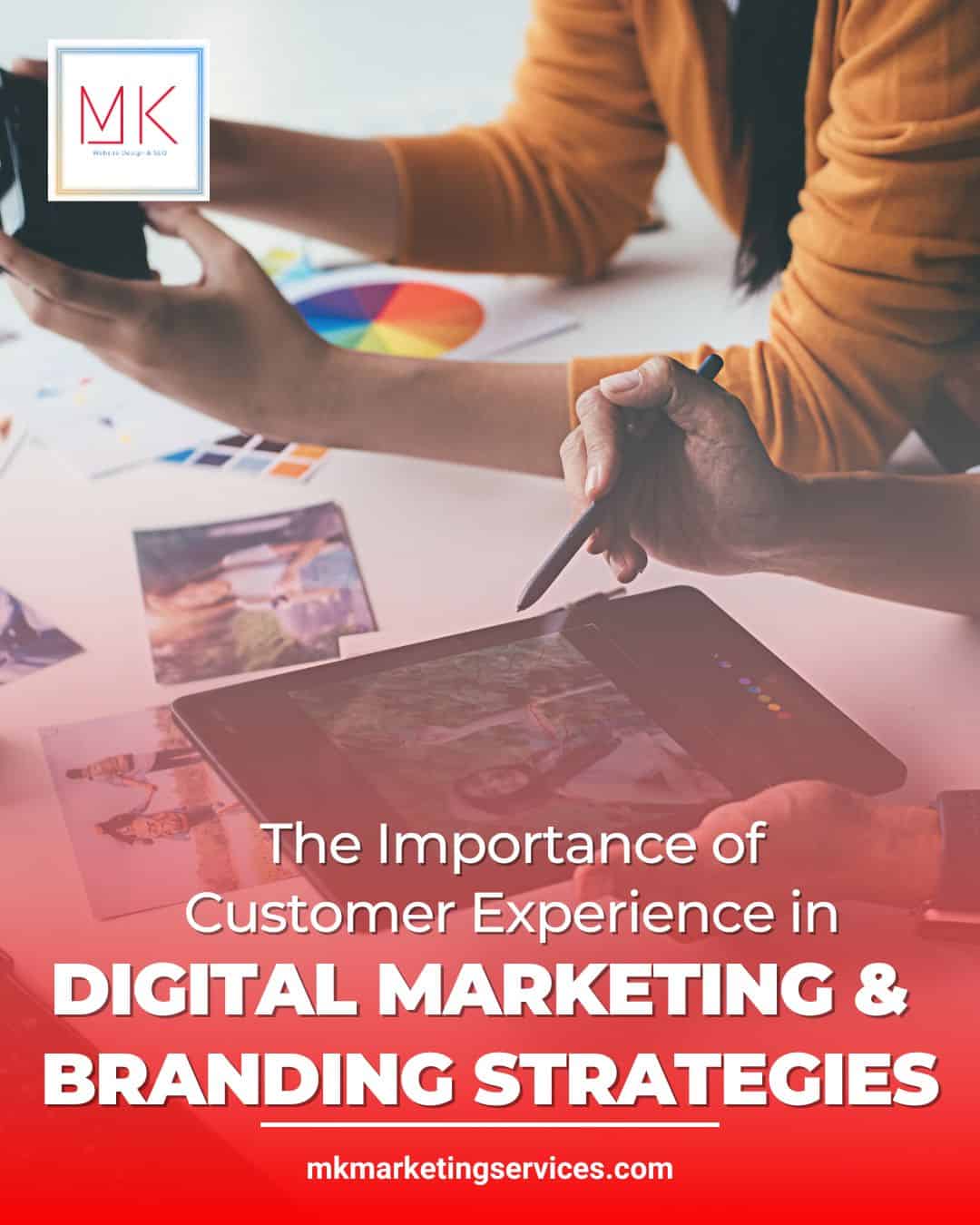During the past several years, the percentage of fresh user profiles registered on a daily basis has been rising tremendously; there are currently not any indications that the present pattern could stop.
Additionally, there can be many explanations behind this, but perhaps the most significant is that technology is currently having more of an effect on the lives of individuals than previously.
Therefore, organizations must reevaluate their approaches to advertising and execute the necessary tweaks if they would like to continue being effective in the marketplace. The key aspect of accomplishing this is the customer experience (CX), which refers to the culmination of how an individual interacts with a business or organization.
But why exactly is the customer experience so important? And how can companies harness it to put together a successful marketing strategy? Before moving to the details, it’s important to understand what digital marketing and branding methods are and how they function.
What are branding and digital marketing strategies?
Knowing how CX and the effectiveness of your marketing initiatives are related is essential for comprehending digital marketing and branding strategies. Here is a succinct explanation of these crucial concepts.
Digital Marketing
Digital marketing is the employment of digital technology for marketing goods and services that a business sells. Reaching and communicating with buyers via the Internet, where they spend the vast majority of their time, is the cornerstone to achieving success. This involves several kinds of strategies, such as:
- Search Engine Optimization (SEO): Search engine optimization (SEO) attempts at raising the rankings of your website on search engine results pages. Think of it as the science of thriving with Google’s algorithms.
- Content Marketing: The process of creating and spreading valuable free information to attract prospects, convert them into buyers, and transform those consumers into recurring customers is known as content marketing. It’s similar to offering samples of your greatest food to attract curious bystanders who are hungry.
- Social Media Marketing: Social media marketing is the practice of interacting with consumers using social media platforms in order to build a brand, increase sales, and increase website traffic. It’s comparable to hosting a party where you may meet with customers.
- Email Marketing: Email marketing is the activity of sending promotional messages by email, often to a list of subscribers. It’s similar to distributing personalized party invites.
Branding Strategies
Branding tactics, on the other hand, are what set your business apart from the competitors and help it stand out from the crowd. It conveys the morals, guiding values, and dedication of your business to its customers.
A branding strategy is a long-term plan for building a strong brand to achieve certain goals. A well-planned branding strategy, which is intimately tied to customer wants, emotions, and competitive settings, has an influence on all aspects of a firm.
The following elements are crucial to branding strategies:
- Brand Identity: People may identify a brand and know that it is linked with certain products when they see its visual elements, such as its color or emblem.
- Brand Positioning: The positioning of a brand refers to its distinct attitude in comparison to rivals, which makes it simpler for buyers to recognize the product and what it provides.
- Brand Voice: The brand voice of your company is the distinguishing character and tone of its communications.
- Brand Image: The brand image is the perception that consumers have of the company as a consequence of their interactions.
Digital marketing is all about how you interact with your clients, while branding strategies establish who you are after you get there. They cooperate to assist a flourishing company in the digital era.
Now, let’s talk about why the customer experience is so important to these strategies.
Why are customer experience strategies important in plans for branding and digital marketing?
While there are plenty of options available, it is of greater significance than ever to provide an excellent experience for customers. Customers look into companies that provide outstanding service while letting them feel like they matter.
Following are some of the primary reasons supporting the importance of customer experience:
Increases business reputation with positive reviews.
Word-of-mouth travels quickly in the technologically evolved culture of today. A pleased consumer is more likely than a disappointed one to review your company online.
Additionally, providing excellent customer service allows for higher client and customer ratings, which may increase your company’s exposure in the increasingly saturated internet market.
A satisfied consumer has a higher lifetime value.
Consumers are more inclined to sustain their long-term involvement with a brand when they are pleased with the services or products supplied by that brand.
The brand may boost its earnings by selling more items or offerings to a consumer by developing an extended relationship with them.
Boosts customer loyalty through positive experiences.
Customer loyalty is the golden grail of marketing. It makes a distinction between profitable firms and unprofitable ones. Client fulfillment has a big impact on their loyalty to a company.
The key to retaining buyers is to supply them with whatever they are looking for whenever they desire it. This approach is common in a variety of fields, such as the expanding use of cryptocurrencies in emerging markets.
Reduces customer churn by preventing customers from switching to competitors.
In the digital world, your competition is only a click away. But a wonderful customer experience? That serves as a powerful anchor to keep your clients from leaving. If you regularly please your customers, they are less likely to move to a rival. This is especially true in marketplaces where customers have many alternatives and don’t give pricing a lot of consideration when making purchases.
Increases the rate of acquiring customers via referrals.
Happy customers don’t only keep buying from you. They were reported on and informed about what you offer. They tell their followers, friends, and family about their excellent experiences. These suggestions are also quite significant. Why? mostly because they are more likely to believe advice from individuals they know.
Drives revenue growth with exceptional experiences.
In just about any business or company, the bottom line is everything. The truth is that raising revenue is directly impacted by increasing customer experience. Customers are willing to pay more for a superior experience. A brand that makes people feel good will win out over a less-priced but nameless competitor.
Develops your brand’s competitive edge by distinguishing it.
Your brand may define its own character and place in the market by concentrating on providing an amazing client experience.
This individual identity, which is defined by the specific client experience your business provides, may help you stand out from the competition. It distinguishes your brand from rivals and enhances its attractiveness to prospective buyers.
This underscores the importance of protecting information in the current cybersecurity environment and encompasses, among other things, guaranteeing that your customer’s personal information is sound.
Conclusion
The most significant goal is to ensure that those who buy from you feel important and cherished. Because if your consumers are content, your brand will flourish. Customer experience is an essential part of your business’s image. It binds everything together, from customer support and treatment to sales and marketing.
In the end, how companies connect with their clients is growing increasingly vital, particularly in the modern internet-based marketplace wherein consumers are constantly bombarded with advertisements and promotional messages from many different kinds of businesses competing for their time and attention.













